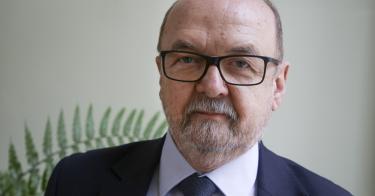Prior to two weeks ago, Middlebury College in Vermont had become just another poster child for the war on free speech on American college and university campuses.
Back in March 2017, administrators at the small liberal arts college disinvited conservative sociologist Charles Murray under threat of violence and protesting students.
The week before last, however, professor Matthew Dickinson and the students in his philosophy class saved the college from yet another free-speech embarrassment, giving hope that the spirit of intellectual inquiry has not gone entirely extinct in American academia.
Good for them.
The controversy this time was precipitated by an invitation to Polish politician and political philosopher Ryszard Legutko by the college’s Alexander Hamilton Forum. The forum was founded by the political science department after the Murray debacle to promote free speech on campus and encourage unfettered debate.
Legutko is an interesting choice of speaker. An anti-communist dissident who fought against Poland’s Cold War oppressors, he served in the administration of now-deceased President Lech Kaczynski.
Today, Legutko represents Poland in the European Parliament. He has also become an astute commentator on the current state of Western democracy and a critic of the European Union.
His book “The Demon in Democracy: Totalitarian Temptations in Free Societies” warns of precisely the kind of political correctness-imposed conformity that met the announcement of his speaking engagement at Middlebury.
The script for what followed has become all too familiar. Students protested his appearance and accused Legutko of criticizing multiculturalism and gay marriage. They falsely claimed he “has built his career off of homophobic, xenophobic, racist, misogynistic discourse.”
Organization of a campus protest was launched and demands made for the cancellation of his appearance.
Predictably, college administrators caved, canceling the speech just three hours before it was meant to take place, citing “potential security and safety risks for both the lecture and the event students had planned in response.”
But this time, the story has a different ending. An enterprising student in Dickinson’s nine-student philosophy seminar proposed they invite Legutko to address the class as a guest speaker.
Dickinson, a Harvard-trained presidential historian, struck a blow for freedom of inquiry by agreeing, if his students agreed—which they did.
As word got out, 45 students attended Legutko’s speech, as well as the question-and-answer session.
Not surprisingly, college administrators later said they would have discouraged even this modest interaction, had they known, “for security reasons.”
Thanks to Dickinson and his students, Middlebury may now become a symbol of the budding rebellion against campus intolerance and for diversity of opinion and free debate.
Hopefully, other academic institutions will be inspired to follow their example.
This piece originally appeared in The Daily Signal



